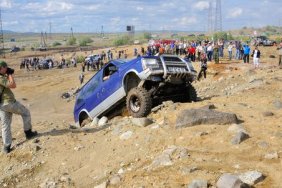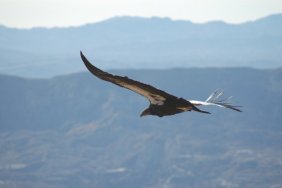California’s Mojave National Preserve in the Southeast corner of the state is experiencing a bighorn sheep die-off caused by pneumonia. This is the state’s largest herd of Desert Bighorn Sheep and state officials are not optimistic. “I suspect that many more are infected,” said Linda Slater, a National Park Service spokeswoman. The national park lists the Mojave herd at around 300 animals.
For hunters familiar with the plight of Desert Bighorn Sheep, they have had a decades old reputation for being delicate animals. Pneumonia has plagued wild mountain sheep ever since various state wildlife agencies began efforts to enhance their population numbers dating back 100 years.
The state of California is not the only state troubled by the pneumonia outbreak. The neighboring state Nevada is also keeping an eye on the situation. Nevada, along with four other states, had an epic breakout of sheep pneumonia during the winter of 2009-2010 in which the states lost up to 1000 sheep. Since the Mojave National Preserve lies at the California/Nevada border, Nevada biologists are worried the disease might spread to their nearest herd of bighorns which is only 45 miles away.
Disease has been a re-occurring player in the life of wild mountain sheep in the West forever. Ever since man introduced domestic sheep and other livestock, wild bighorn sheep have suffered. In fact, the state has run tests that have confirmed that the bighorns have died from a strain of pneumonia that is transmitted from domestic sheep. Unfortunately, this strain is fatal. Wild sheep have no natural defenses to the disease.
There are believed to be less than 10,000 western sheep today, compared to an estimated 1.2 million that were believed to have been present in the region at one time. A coveted desert sheep tag is the hardest tag in the country to draw, and their rarity makes them a prize for any hunter– literally. It is not uncommon for states to fetch up to $200,000 or higher for tags that are auctioned off to raise funds for sheep management.
Another tragedy of this situation is that the five herds that are located inside the Mojave National Preserve are considered “foundation” herds. These animals are used to populate other lesser sheep-bearing areas, and they were considered one of the state’s healthiest herds.







